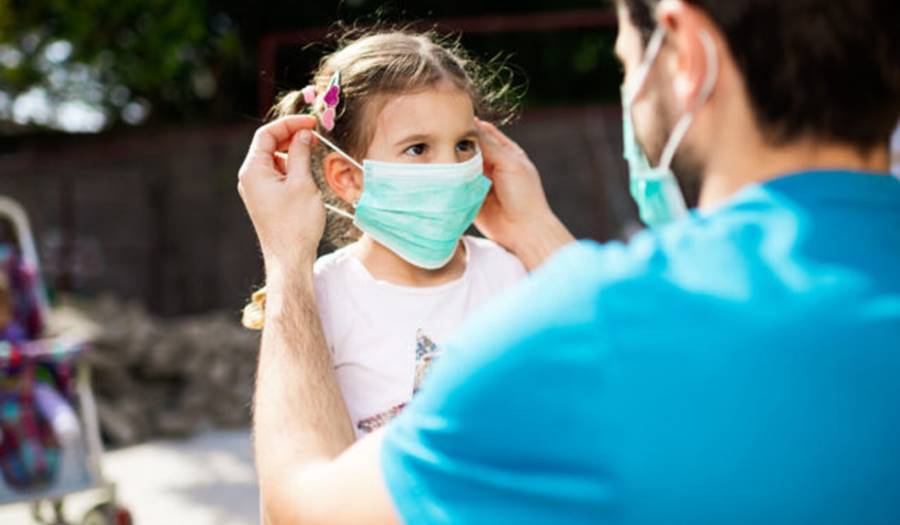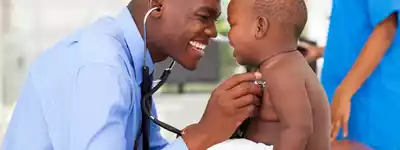
COVID-19 Updates
3/22/2021
COVID-19 IN THE PEDIATRIC POPULATION
Please note this blog was written in February 2021 and is accurate as of that date. As we know, information is changing as we learn more about COVID-19.
As COVID-19 has reached it’s one year anniversary we are now seeing some hope, with the vaccination rollout starting, as well as the fallout, including health issues after infection and variants of the virus. We are lucky that children seem to have very mild illness and often are asymptomatic. But what if your child had a moderate or severe infection? What issues may affect your child if they are infected with COVID-19?
MIS-C
WHAT IS IT?
MIS-C is a rare but serious complication associated with COVID-19. MIS-C stands for Multisystem Inflammatory Syndrome in Children. This syndrome results in inflammation of organs or functional systems in the body. It can result in damage to organs, such as the heart or kidneys, or may cause clotting issues. Scientists are not sure how or why it is linked to COVID-19. It looks very similar to other syndromes such as Kawaski’s disease or Toxic Shock Syndrome which both involve inflammatory processes.
WHAT ARE THE SYMPTOMS
Symptoms of MIS-C can be varied in children but can include:
• Fever
• Abdominal pain
• Diarrhea
• Nausea
• Neck pain
• Rashes or abnormal looking skin
• Bloodshot eyes
• Fatigue
• Trouble breathing
• Chest pressure
• Confusion
• Lethargy
• Blue tinge to lips or face
HOW DO WE DIAGNOSE AND TREAT MIS-C
To diagnose your child with MIS-C, they will need an evaluation that include as physical exam, blood work or laboratory studies that look for inflammation or clotting issues, a chest x-ray, an EKG (electrocardiogram) and an ECHO (an ultrasound of the heart). A child’s care may involve a cardiac MRI or other testing.
Children diagnosed with MIS-C are responding well to treatment. Treatment includes fluids, treating the inflammation with various medications, and rest. Some children need to be hospitalized, potentially in the Intensive Care Unit, and some children are able to recover at home. Any child diagnosed with MIS-C will require long term monitoring by a cardiologist to evaluate for heart damage.

RETURN TO SPORTS
Because of the risk of cardiac injury or inflammation after COVID-19 infections, the American Academy of Pediatrics as well as Pediatric Cardiologist are recommending an evaluation before your child returns to playing sports. Children are more likely to have asymptomatic or mild symptoms which means they may not have required a level of care that included and exam or testing of their heart. We know that COVID-19 infection can cause cardiac damage and myocarditis even if symptoms are not severe. Myocarditis is inflammation of the heart muscle and is the leading cause of sudden cardiac death during exercise in children. Myocarditis can cause changes to the heart’s electrical system (what makes it beat and set the rhythm) and the heart’s ability to pump.
There are currently guidelines set for adults to return to sports and exercise, but we recommend, and will be following, the guideline set forth by a group of Pediatric Cardiologist associated with the American College of Cardiology. This group recommends following an algorithm that takes into consideration how recent was the infection, how severe was the infection, and what is the child’s level of activity or intensity of the activity.
ASYMTPOMATIC OR MILD COVID-19 INFECTION
A mild or asymptomatic case is defined as a person who had a COVID-19 infection with no symptoms or with no fever and symptoms lasting less than 3 days. The AAC recommends any mild or asymptomatic case refrain from sports for 2 weeks and they can return to play if they feel able at that time. Most asymptomatic or mild cases will not need testing. If your child has any chest pain, shortness of breath with exercising, or dizziness, you should have your child examined by their primary care provider.
MODERATE COVID-19 INFECITON
Moderate COVID-19 infection is defined as symptoms that require bed rest, fever, or symptoms lasting longer than 3 days. It also includes anyone who has abnormal cardiac exams WHILE they are infected. It is important for the moderate group to have a physical exam and testing done because they could have subclinical injury to their heart (meaning not detected based on symptoms). If your child has moderate symptoms and they are younger than 12 years of age, they may follow the guidelines for asymptomatic or mild infection as long as their exam is normal, and their history does not indicate any cardiac involvement. If your child is over 12 or is involved in intense sports or activities, they should have an exam, an electrocardiogram, and lab work including a high sensitivity troponin test.
SEVERE INFECTION
Children with severe infection are those that required hospitalization, had abnormal cardiac tests DURING their COVID-19 infection, or were diagnosed with MIS-C. These children will not be allowed to play sports for 3-6 months. They will need to be evaluated and followed by a cardiologist. The cardiologist will monitor your child and will use EKGs, ECHOs, exercise stress tests or cardiac MRIs to monitor the function of your child’s heart. Once their tests return to normal, they will be allowed to return to sports.
A visual of the algorithm is below:
If your child fits the moderate or severe symptom category, please contact us to set up and exam so that we can start the process to get your child back to their sport and activity as quickly and safely as we can. We understand what an importance sports and activities have been to our patients’ mental health during this COVID pandemic.
VACCINES
The COVID-19 vaccination program has begun. As of now healthcare workers, many teachers, and our older population has been vaccinated. As of right now the Pfizer vaccine can be used in children 16-18. The Moderna vaccine is only for adults 18 and older. Currently, there are clinical trials being conducted with 12-to-17 year old children and once those are completed they may start trials for 5-to-12 year old children. We are hoping to have a vaccine available to children Fall 2021 or 2022. These vaccines are different than any vaccine your child has ever received. We will explain below.
WHAT IS A VACCINE?
A vaccine is a “substance used to stimulate the production of antibodies and provide immunity against one or several diseases.” Vaccines use a weakened version of the disease, a part of the disease, a product of the disease such as toxin, or a synthetic substitute for the disease to act as an antigen (a foreign substance). There was a previous blog post all about vaccines and vaccine preventable diseases. Click HERE to see that blog and learn more about vaccines.

HOW IS THE COVID-19 VACCINE DIFFERENT
The Pfizer and Moderna COVID-19 vaccines use mRNA technology. How does mRNA technology work? To understand, we need to know what mRNA is. DNA is the blueprint and all the information about every cell in your body. DNA in the cell nucleus makes mRNA and sends it out of the nucleus to tell the cell what proteins to make. Your body uses mRNA instead of all the DNA because every cell has different needs. Your eye cells don’t need to make all the same proteins as your kidney cells. Instead of making all the proteins the body can make, the cell only makes and gets what it needs. Once the protein is made, mRNA breaks down in your body. mRNA cannot get into the nucleus of the cell, it only comes out of the nucleus
COVID-19 vaccines contain mRNA that instructs your cells to make a particular protein specific to the COVID-19 virus. It makes your body make the spikey part of the COVID-19 virus and only that. It cannot make the whole COVID-19 virus. Your body recognizes this spikey protein as foreign and uses your immune system to get rid of it. Your body creates specific antibodies that will remember those spike proteins and your T-cells and B-Cells (immune system cells that fight infection) are activated to help get rid of the foreign protein. The antibodies stick around but the mRNA does not. mRNA is not a stable product and your body gets rid of it quickly, just like it gets rid of the mRNA your body uses to make the proteins you need for cells in your body. And remember NO mRNA can get into the nucleus of the cell or enter your DNA.
mRNA vaccines are the product of 30 years of research! Scientist working on mRNA vaccines have been studying how viruses work, replicate, and make us sick. They used what they learned to make mRNA vaccines. And mRNA vaccines are amazing because they are more effective and safer than the current model of making vaccines. mRNA vaccines not only make antibodies but get your T-cells and B-cells ready to fight!
It might seem that the COVID-19 vaccine came out quickly. But we need to remember, this is 30 years of science and research culminating in this vaccine. COVID-19 is also worldwide pandemic and needs to be addressed immediately. Because of this, many researchers and scientists stopped working on their own projects to help with the development of this vaccine. They were also able to use what they learned from the development of other mRNA vaccines. A dozen other mRNA vaccines, for things such as influenza, Zika virus, and RSV, have been in development for years. These diseases either have traditional vaccines available or are not considered “emergencies” so they have not been used yet. They have, however, made it to the last stage of clinical trials.
Just because it came out quickly does not mean it was not well researched or isn’t safe. The vaccine studies involved over 60,000 people. Most vaccine trials have around 4,000 people that they study. This large number gave us lots of data about the vaccines, our body’s response, and side effects. The vaccine was also able to come out because it moved past the red tape of the government so much faster! The process of monitoring and examining the vaccine was not compromised, but the paperwork moved a lot faster through the system.
CAN THE VACCINE GIVE ME COVID-19 OR MAKE ME SICK
NO. The vaccine cannot make you develop COVID-19 infection. The mRNA only codes for a protein, not the whole virus and your body does not have the rest of the code or instructions to make the virus. This does NOT mean you will not develop some symptoms after the vaccine such as fever, chills, body aches, or malaise (feeling unwell) The symptoms you have after a vaccine are not illness, it is the response of your immune system. And although we hate for you to feel sick, that is actually what we want to see! We are triggering your immune system and your symptoms show that it is working! We want your body to mount a defense so that when you come across COVID-19, your body can fight it off before you develop severe disease.
With mRNA vaccines you are more likely to have some symptoms after the vaccine because it triggers a better immune response than traditional vaccines. Remember, our body not only is making antibodies against COVID-19, our body is using T-cell and B-cell immune cells to neutralize the threat. This double pronged immune response may result in more symptoms after your vaccine.
VARIANTS
Viruses are tricky. The only goal of a virus is to make more virus. Because of this the virus will mutate and change. And if it helps it spread or make more virus, a new strain of the virus emerges. These are called variants. We expect this to happen and it happens with most viruses.
We currently have a few variants that have entered the communities of the world. There are a few worries about the variants. Some variants look like they may be MORE contagious than the original virus. We also do not know if these variants are more likely to make children sicker than with the original virus.
There is also worry as to if these variants will be recognized by the vaccine. As of right now, one variant (the B..1.1.7 variant, starting in the UK) will be recognized by the antibodies in the vaccine. The other variant, E484K (starting in South Africa) may not be able to be recognized the antibodies your body produces in response to the original virus. It also needs more antibodies from the mRNA vaccine but because you get a better antibody response from a vaccine versus actually being infected with COVID-19, the vaccine should provide coverage against this strain. Scientists are already working on make booster shots of the vaccines that cover the new variants (just like we do with the influenza vaccine).
POST VACCINATION
After you receive the vaccine, the current recommendation is to continue ALL precautions including social distancing, physical distancing, wearing a mask, and frequent handwashing. The vaccine is proven effective at preventing severe illness and death from COVID-19 infection. We do not know if you can still pass the virus to others even if you do not have symptoms. In an effort to get the vaccine out quickly, they did not wait for this data, but they continue to study this and hopefully in a few months we will have more information.
COVID-19 RESOURCES/INFORMATION
BOSTON CHILDREN'S HOSPITAL. Their COVID-19 site includes helpful videos for children who may be nervous about testing. It also has easy to understand answers to questions from parents.
HAND HOLD This site was created to help parents and children who are struggling with mental health during the pandemic (though the tips can be useful for anytime your child may be sad, anxious, or angry).
Association of Child Life Professionals is an amazing resource that has information and activities to help children of all ages, including teens, and parents, The ACLP’s site has child friendly videos, coloring activities, links to handouts, article or blog posts, and podcasts.
COVID-19 has definitely outstayed its welcome. But we need to continue to be vigilant with all precautions. And we need to make sure we educate ourselves about the new realities of our COVID-19 pandemic world, including how the virus is affecting our children such as MIS-C or potentially cardiac damage. If you have any questions or concerns, please do not hesitate to reach out to your primary care provider or our office.
Children’s Health Care of Newburyport, Massachusetts and Haverhill, Massachusetts is a pediatric healthcare practice providing care for families across the North Shore, Merrimack Valley, southern New Hampshire, and the Seacoast regions. The Children’s Health Care team includes pediatricians and pediatric nurse practitioners who provide comprehensive pediatric health care for children, including newborns, toddlers, school aged children, adolescents, and young adults. Our child-centered and family-focused approach covers preventative and urgent care, immunizations, and specialist referrals. Our services include an on-site pediatric nutritionist, special needs care coordinator, and social workers. We also have walk-in appointments available at all of our locations for acute sick visits. Please visit chcmass.com where you will find information about our pediatric doctors, nurse practitioners, as well as our hours and services.
Disclaimer: this health information is for educational purposes only. You, the reader, assume full responsibility for how you choose to use it.








